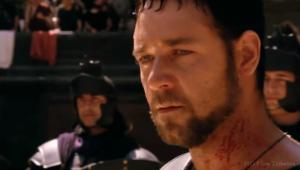Viewpoint: A Video Revolution?
 Your favorite first-run movies could be coming soon to a theater near you—your own home theater—in full high definition.
Your favorite first-run movies could be coming soon to a theater near you—your own home theater—in full high definition.
Now that I have your attention, and before I get to the subject in the teaser subhead of this month's column, there's been an important staff change here at Ultimate AV. Technical Editor Scott Wilkinson, an important and valued contributor to UAV and, for many years before that, to the Stereophile Guide to Home Theater, has left to pursue other opportunities. We will miss him and wish him the best in his future endeavors.
But we are fortunate to have found an outstanding replacement. Shane Buettner is now Ultimate AV's new Technical Editor. Shane is known and respected in the industry for his outstanding audio and video reports and reviews, first at Widescreen Review and, most recently, at The Perfect Vision. Welcome aboard, Shane!
On to the subject at hand. Imagine the following concept. Movie studios put their new films on the Internet, in high definition (possibly even in full 1080p) day and date with their theatrical release. For a reasonable fee, say about $12—or roughly the price of a single ticket to a weekend evening show in one of the better theaters in Los Angeles (not including parking!)—you can download the film of your choice to small, dedicated, download server. This download server, in a chassis about the size of an average DVD box set, is not a full-fledged computer. But it has a large hard drive, analog and digital audio and video outputs, and just enough operating software to coordinate downloads and take care of other housekeeping chores (except copy protection, which is performed in hardware).
For this fee, you get to watch the film once, or perhaps twice, on your home system while the film is still in theaters. Following those two viewings, playback is locked out. After the theatrical run, or more likely concurrent with the video release date, you can watch the movie an unlimited number of times.
You can even copy the film from the download server's hard drive to a larger, external hard drive or to another outboard recorder (such as Blu-ray). Storage on outboard drives opens up the market for affordable media servers with the functionality of the Kaleidescape System but in full high definition, and without risk of the Hollywood studios or copy protection bureaucracies throwing a legal snit. The only condition is that playback of these new data files have to pass back through the download server as a copy protection measure. You won't be able to bring your freshly minted Blu-ray recording of the movie to a friend's house; it won't work through his or her download server.
The studios will even provide downloadable artwork and program notes so you can print full-color inserts and covers, using your own printer, to produce a professional looking Blu-ray or HD-DVD package. In other words, you become the production plant. The production and distribution savings to the studios with such a system would be huge.
This is not a dream. Video guru Joe Kane, in an off-site hotel room sponsored by Samsung at the recent CEDIA Expo, was talking it up during a demonstration of the newest Samsung DLP projector (the SP-H800—essentially the current SP-H700 updated with TI's DarkChip3). He insisted that the studios—at least some of them—are serious about this. And to prove the system wasn't entirely vaporware, he was using a working prototype of Samsung's download server (though with program material pre-loaded, since the on-line portion of the system does not yet exist). This server is expected to sell for about $300, and the features offered by this box could certainly be built into a one-piece television set.
Joe noted that the system could be in operation as soon as early 2006. But for me, a lot of questions still remain. How long will it take to download a film (best guess—at least overnight)? Won't the theater-owners and, in particular, the video stores, exercise enormous pressure to keep this from happening? (The answer to this is that the studios for their part, want to pressure the theater chains into upgrading the theatrical experience—and save on distribution costs—by installing digital projection systems.) Will the system really limit piracy? How will region coding be accommodated? What happens if you buy a new download server with its own, unique identification, either as an upgrade or as a replacement for a defective unit? Will your collection suddenly become obsolete, or will there be provision for one or more such system upgrades while still allowing playback of your existing archive? What happens to that $10,000 library of downloaded films transferred to Blu-ray if, as inevitably will happen, the system becomes obsolete in 5, 10, or even 20 years, and you can no longer buy a new, compatible download server to decode the files?
But most of these questions involve the files transferred from the download server to another storage device. The appeal of simply downloading current films to view in the highest, high definition quality may be the feature that sells the system. And the system could bypass, hopefully, all of the added compression and other image degrading manipulation that satellite, cable, and even broadcast suppliers will inevitably apply in their need for ever greater throughput. (On the downside, this system could suffer the same fate if it bends to the inevitable pressure for faster download times!)
Is this an end-run around the whole Blu-ray/HD-DVD format war nonsense? Perhaps, but it's also very possible that this download system could co-exist side-by-side with standard, in-store release of commercially-produced HD-DVD or Blu-ray discs. I certainly hope that recorders using one or both of those formats inevitably succeed; I strongly believe in having a hard copy—not just a volatile, hard-drive copy—of the important films in my own collection.
The fact that this system was shown in such a low-key fashion in a small hotel space rather than making the big convention center splash it would appear to demand suggests to me that more than a few widgets have yet to fall into place before it becomes a reality. We're not counting the days until we can see Peter Jackson's King Kong at home, during its theatrical run, in glorious 1080p; the failure of VOOM has taught us to have a healthy skepticism about bold new initiatives in the delivery of HDTV. But we'll keep a close watch on this.

























































